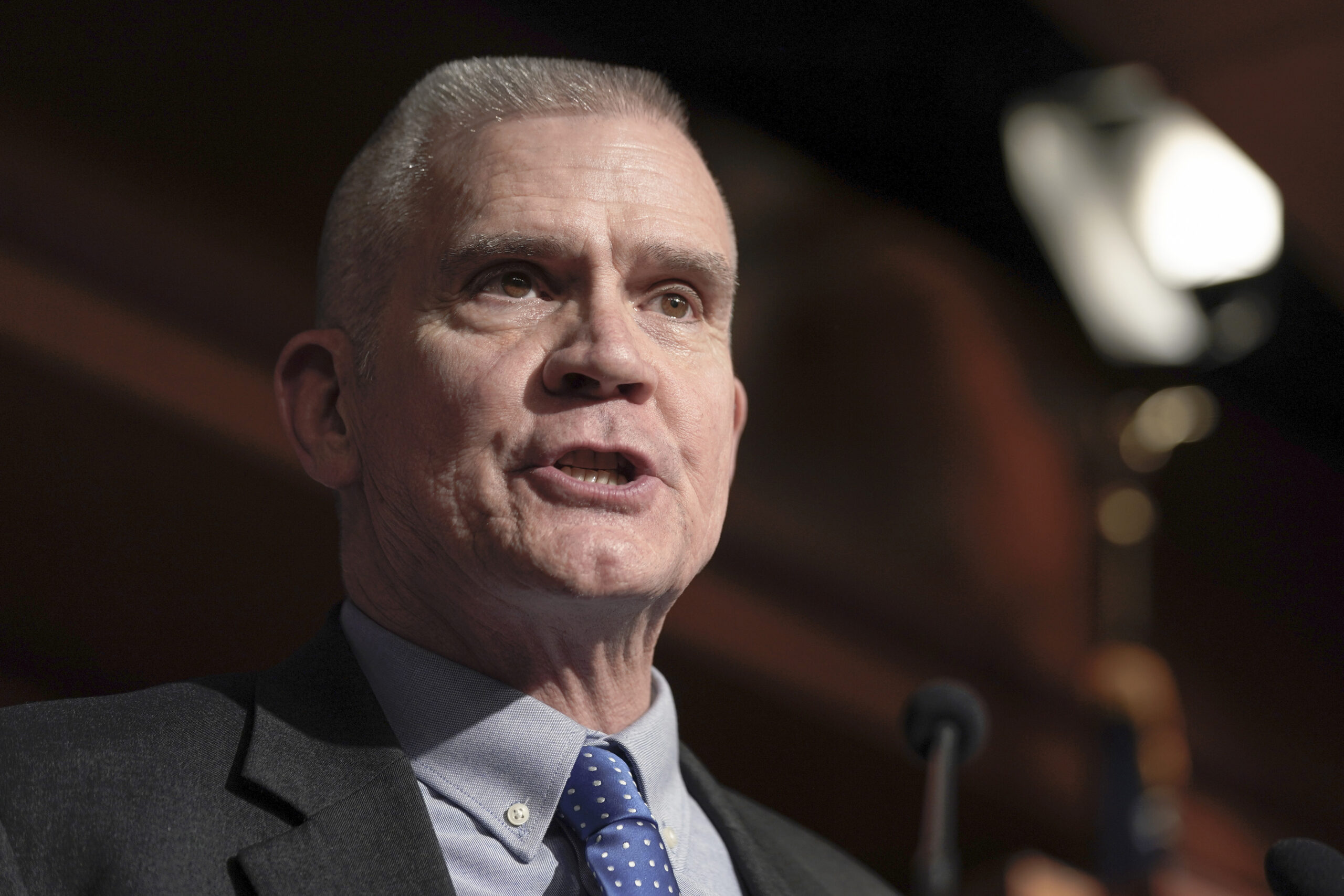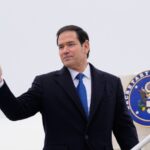

Rep. Matt Rosendale (R-MT) was determined to enter Montana’s Senate primary race for months, even after Republicans in Washington had worked to keep him on the sidelines.
Former President Donald Trump endorsed Rosendale in the past and even visited Montana repeatedly to stump for the congressman, who ultimately lost by 3.5 percentage points to Sen. Jon Tester (D-MT) in 2018. There was some hope the front-runner for the 2024 GOP presidential nomination would boost Rosendale’s campaign once again or stay out of the Montana race completely, according to those familiar with internal discussions.
ELECTION 2024: FOLLOW LATEST COVERAGE
In the launch of his campaign, the congressman branded himself as the candidate with the closest ties to Trump, touting that he had “voted in support of President Trump’s agenda every single time.”
However, those claims were short-lived when, hours after Rosendale officially launched his campaign last week, Trump announced he would give his coveted endorsement to Tim Sheehy, a former Navy SEAL whom the National Republican Senatorial Committee had worked hard to recruit.
“I don’t think any of us had expected Trump would weigh in that quickly after the congressman announced his bid,” a source familiar with internal discussions said. “We had been told he may not get involved at all.”
Rosendale dropped his Senate bid Thursday, less than a week after announcing a run, claiming he did not have a path forward after Trump endorsed his primary opponent.
Tensions between Rosendale and the former president had been escalating after the Montana congressman refused to accept a phone call from Trump in the midst of the House speakership fight last year. The congressman, a member of the conservative Freedom Caucus, is one of the eight Republicans who voted to oust Speaker Kevin McCarthy.
Efforts from Rosendale to win over Trump’s endorsement appeared to be in peril in December 2023 after advisers for the former president were irked by Rosendale’s promotion of a run-in he had with Trump despite not yet having endorsed him at the time.
The Montana congressman was fundraising at Mar-a-Lago when he bumped into Trump. The encounter was captured on social media, in which Rosendale said Trump was “the best president of my lifetime” and that the Senate needed “strong conservatives” to enact the former president’s agenda. Rosendale had held off on endorsing the former president’s campaign but finally did so a couple of days later in a post on X. At the time, Rosendale defended the timing of his endorsement, claiming it was a strategic move in an interview with CNN.
“I just thought it would be more beneficial for the endorsement to come in at this time,” Rosendale said. “There’s a lot of people that rushed out at the beginning of it, and I didn’t need to be part of a big crowd. I just wanted to make sure that it stood out as a single endorsement and it would have more impact.”
However, those close to Rosendale do not think the congressman’s relationship with the former president was strained. They believe the high-ranking Republican officials in Washington got to Trump and ultimately persuaded him to endorse their hand-picked candidate.
“All along, there was a belief that by Trump not offering an endorsement of Sheehy, that could give Rosendale an opportunity to get into this race,” said a Montana-based GOP strategist who preferred to stay anonymous. “There is a group of Rosendale’s constituents that identify with his conservative ideology, but the problem is that he doesn’t win state-wide general elections.
“There are some in the state that think the Sheehy endorsement from Trump was planned to undercut Rosendale’s Senate bid,” the strategist continued. “Trump can be spontaneous, but this didn’t seem like it.”
Last year, Senate Republicans signaled they were willing to box out weak GOP candidates in the 2024 primaries following a lackluster 2022 performance in which they failed to capture the upper chamber. The shift reflected a widespread sense within the Republican conference that its roster of inexperienced and, in some cases, controversial candidates was at least partially responsible for the party’s failure to take control of the Senate.
Under the leadership of Sen. Steve Daines (R-MT), the NRSC made clear that it is more willing to take sides in Republican primaries, a departure from its policy in the 2022 cycle. So far, the Senate GOP campaign arm has offered endorsements of Sheehy and many other Senate candidates, including Rep. Jim Banks (R-IN), Kari Lake in Arizona, Sam Brown in Nevada, Gov. Jim Justice (R-WV), Eric Hovde in Wisconsin, Dave McCormick in Pennsylvania, Nella Domenici in New Mexico, and former Gov. Larry Hogan in Maryland. The committee has remained neutral in the Ohio Senate race, although Trump has chosen to endorse Bernie Moreno.
NRSC spokesman Mike Berg declined to comment on Daines’s private conversations with Rosendale, but sources reveal the Montana senator had worked for months to keep Rosendale out of the race and urged him to rise in the ranks in the House instead. Rosendale acknowledged that he decided to end his campaign after consulting with Daines earlier this week in a statement on Thursday.
“I spoke with Sen. Daines earlier this week and we both agree that this is the best path forward for Republicans to regain the majority in the U.S. Senate,” Rosendale said.
Ahead of Rosendale’s announcement, House Speaker Mike Johnson (R-LA) had considered endorsing him, viewed by some as a way to manage his relationship with a rebellious conference member. However, the speaker faced backlash from the Montana congressional delegation, and Johnson ultimately decided against doing so.
The NRSC has taken different strategies over the years, from getting involved in Republican primaries to taking a completely hands-off approach in 2022. In 2014, the committee took a more active role in contested primaries after being burned by intraparty warfare in the previous two election cycles. That year was a major success, with Republicans taking back control of the upper chamber.
It appears Senate Republicans are trying to avoid the mistakes of last cycle, in which the previous chief of the Senate campaign arm, Sen. Rick Scott (R-FL), declined to put his finger on the scale in open primaries. As a result, some Republicans believe more electable candidates failed to win their primaries against those who had Trump’s endorsement in states including Arizona, New Hampshire, and Georgia.
John Ashbrook, a former top aide to Senate Minority Leader Mitch McConnell (R-KY), said he believes the strategy this cycle is much more likely to set up Republicans for success.
CLICK HERE TO READ MORE FROM THE WASHINGTON EXAMINER
“When Donald Trump and Mitch McConnell are aligned for a primary effort managed by Steve Daines, it’s impossible to lose,” Ashbrook said. “[Rosendale], to his credit, foresaw an undesired outcome and decided to make other plans.”
The map of Senate seats up for election in 2024 is favorable for Republicans. Twenty Democratic-held seats are up, as are the three held by independents who caucus with the Democrats. Just 10 seats controlled by Republicans will be on the ballot.





